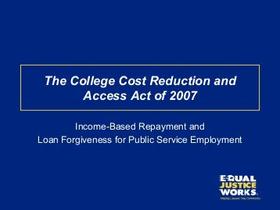- The Charlotte Campus offers bachelors, associate and certificate programs. Located in financial center of the New South, home to 299 Fortune 500 companies, the campus offers links to local, national and global industry in a modern, fast-paced university setting. Our pioneering approach to academics combines classroom education with industry-specific skills. Our academic programs blend the theoretical with the practical and are designed with industry input, so you?ll graduate with the knowledge and skills employers are seeking. We'll provide you with hands-on learning in small classroom settings, training on industry-specific software, leadership development and community service opportunities, a faculty with significant industry experience, the opportunity to take classes in your major in your first term, innovative concentrations, opportunities to study overseas. One-third of your coursework will consist of arts and sciences classes, so you'll develop the critical thinking, analytical and communications skills necessary for long-term career progression. At our Providence Campus, we also offer graduate programs in education and business.
School Highlights
Johnson & Wales University-Charlotte serves 1,237 students (95% of students are full-time).
Minority enrollment is 69% of the student body (majority Black), which is more than the state average of 48%.
Quick Facts (2025-26)
- Enrollment: 1,237 students
- Private-state tuition: $35,750
- Acceptance Rate: 82%
- Minority enrollment: 69%
- Source: Verified school update
Top Rankings
Johnson & Wales University-Charlotte ranks among the top 20% of public schools in North Carolina for:
Category
Attribute
Diversity
School Resources
School Overview
Johnson & Wales University-Charlotte
(NC) Community College Avg.
Carnegie Classification
Baccalaureate Colleges: Diverse Fields
Associate's Colleges: Mixed Transfer/Career & Technical-High Nontraditional
Institution Level
Four or more years
At least 2 but less than 4 years
Institution Control
Private not-for-profit
Public
Total Faculty
n/a
256 staff
School Calendar
Student Body
The student population of Johnson & Wales University-Charlotte has declined by 18% over five years.
The Johnson & Wales University-Charlotte diversity score of 0.70 is more than the state average of 0.66. The school's diversity has grown by 12% over five years.
Total Enrollment
1,237 students
2,579 students
Student-Teacher Ratio
n/a
13:1
# Full-Time Students
1,172 students
766 students
# Part-Time Students
65 students
1,813 students
# Enrollment Undergraduate
123 students
316 students
# Full-Time Undergraduate Students
1,172 students
766 students
# Full-Time Graduate Students
5 students
22 students
# Part-Time Undergraduate Students
65 students
1,990 students
# Part-Time Graduate Students
n/a
3 students
Total Dormitory Capacity
1,202 students
717 students
% American Indian/Alaskan
n/a
1%
% Asian
2%
3%
% Hispanic
12%
13%
% Black
43%
21%
% White
31%
52%
% Hawaiian
3%
1%
% Two or more races
2%
3%
% Non Resident races
1%
1%
% Unknown races
5%
5%
Diversity Score
0.70
0.66
College Completion Rate (Students who graduate in less than 4 years)
n/a
37%
College Completion Rate (Students who graduate in 4 years or more than 4 years)
53%
43%
Average Graduate Earnings (10 Years)
$38,800
$27,500
Tuition and Acceptance Rate
The private state tuition of $35,750 is more than the state average of $19,438. The private state tuition has stayed relatively flat over four years.
Private State Tuition Fees
$35,750
$19,438
Tuition Notes
Tuition & fees for 2021-22 academic year
% Students Receiving Some Financial Aid
100%
82%
Median Debt for Graduates
$25,750
$11,865
Median Debt for Dropouts
$8,436
$5,846
Acceptance Rate
82%
82%
SAT Reading
n/a
488
SAT Math
n/a
498
ACT Composite
n/a
20
ACT English
n/a
13
ACT Math
n/a
16
Sports
Total Sports Offered
7 sports
Sports
BasketballCheering
Cross CountryGolf
SoccerTennis
Volleyball
Source: 2024 (or latest year available) Integrated Postsecondary Education Data System (IPEDS) , School Administrators
Frequently Asked Questions
How much does Johnson & Wales University-Charlotte cost?
Johnson & Wales University-Charlotte's private state tuition is approximately $35,750.
What schools are Johnson & Wales University-Charlotte often compared to?
Johnson & Wales University-Charlotteis often viewed alongside schools like Central Piedmont Community College by visitors of our site.
What is the acceptance rate of Johnson & Wales University-Charlotte?
The acceptance rate of Johnson & Wales University-Charlotte is 82%, which is equal to the state average of 82%.
What sports does Johnson & Wales University-Charlotte offer?
Johnson & Wales University-Charlotte offers 7 interscholastic sports: Basketball, Cheering, Cross Country, Golf, Soccer, Tennis and Volleyball.
What is Johnson & Wales University-Charlotte's ranking?
Johnson & Wales University-Charlotte ranks among the top 20% of community college in North Carolina for: Diversity in US community colleges, Average community college minority breakdown and Percent of students receiving financial aid.
In what neighborhood is Johnson & Wales University-Charlotte located?
Johnson & Wales University-Charlotte is located in the Charlotte center city neighborhood of Charlotte, NC.
Recent Articles

Community College Success Rates 2025: Outcomes & Trends
Updated 2025 analysis of community college success rates, completion, transfer, costs, enrollment, and strategies that shape student outcomes.

Community Colleges in 2025: Combating Stereotypes with Impact
Updated insights on how community colleges are dispelling myths, growing enrollment, and expanding pathways in 2025.

2025 FAFSA Changes Explained for Community College Students
A comprehensive guide to 2025 FAFSA changes, what community college students must know, new eligibility rules, timelines, and tips to maximize federal aid.



















